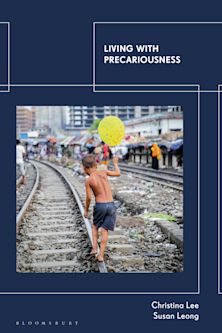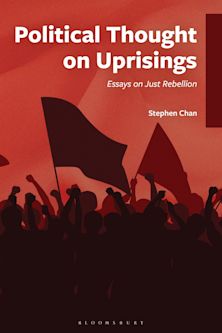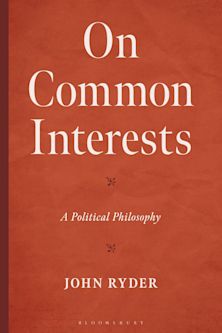- Home
- ACADEMIC
- Politics & International Relations
- Political Theory and Philosophy
- Assessing MENA Political Reform, Post-Arab Spring
Assessing MENA Political Reform, Post-Arab Spring
Mediators and Microfoundations
Brian Robert Calfano (Anthology Editor) , Abdelhak Azzouzi (Contributor) , Brian Robert Calfano (Contributor) , Jason Gainous (Contributor) , Mehmet Gurses (Contributor) , Nader Hashemi (Contributor) , Lynne Alisé Lofftus (Contributor) , Marcus Marktanner (Contributor) , Christina Michelmore (Contributor) , Mahmoud Sadri (Contributor) , Emile Sahiyeh (Contributor) , B. Todd Spinks (Contributor) , Kevin Wagner (Contributor)
Assessing MENA Political Reform, Post-Arab Spring
Mediators and Microfoundations
Brian Robert Calfano (Anthology Editor) , Abdelhak Azzouzi (Contributor) , Brian Robert Calfano (Contributor) , Jason Gainous (Contributor) , Mehmet Gurses (Contributor) , Nader Hashemi (Contributor) , Lynne Alisé Lofftus (Contributor) , Marcus Marktanner (Contributor) , Christina Michelmore (Contributor) , Mahmoud Sadri (Contributor) , Emile Sahiyeh (Contributor) , B. Todd Spinks (Contributor) , Kevin Wagner (Contributor)
You must sign in to add this item to your wishlist. Please sign in or create an account
Description
The euphoria and promise that accompanied the Arab Spring has been replaced with a business-as-usual tone in the MENA. Revolutionary shifts in political and religious power have been tempered and, in some cases, reversed. Observers should not be surprised at these outcomes, but skeptics would be advised to remain attentive to regional factors that continue to present potentials for reform. This volume examines a variety of such factors as mediators of MENA political reform, including: Islam, political party and government relations, regime type, elite influence, and Internet access. By providing both a broad review of the relevant literatures and a flexible assessment of the region’s political prospects in the post-Spring period, the volume leverages insights from a series of regional experts and political analysts to offer a useful contribution to the continuing work of reform by MENA scholars, policymakers, and the general public.
Table of Contents
Chapter Two: The Arab Popular Uprisings. Brian Calfano and Emile Sahliyeh
Chapter Three: Islam and Interpretive Ingenuities. Brian Calfano and Lynne Alisé Lofftus
Chapter Four: Parties as Political Forces in the Maghreb. Abdelhak Azzouzi
Chapter Five: How Green is the Spring? Comparing the Iranian and the Arab Pro-democracy Movements. Mahmoud Sadri and Nader Hashemi
Chapter Six. Oil and Economic Liberalism in the MENA. Mehmet Gurses
Chapter Seven. Does Regime Type Make a Difference for MENA Reform? Todd Spinks, Brian Calfano, and Emile Sahliyeh
Chapter Eight. Elite-Led Consideration of the Role of Women in MENA Politics: Some Initial Experimental Findings. Brian Calfano, Marcus Marktanner, and Christina Michelmore
Chapter Nine. Transmitting Reform? The Media’s Effect on MENA Democracy and Human Rights. Brian Calfano and Emile Sahliyeh
Chapter Ten. MENA and the Internet: Technology and the Democratic Divide. Jason Gainous and Kevin Wagner
Chapter Eleven. Concluding Observations and Recommendations. Brian Calfano
Product details
| Published | 29 Oct 2014 |
|---|---|
| Format | Ebook (Epub & Mobi) |
| Edition | 1st |
| Extent | 252 |
| ISBN | 9780739135846 |
| Imprint | Lexington Books |
| Illustrations | 48 tables; 5 graphs |
| Publisher | Bloomsbury Publishing |
About the contributors
Reviews
-
Calfano and colleagues. . . .provide nuanced explanations. The reader learns, for example, that power-sharing relationships between political parties and governments—such as in the Maghreb states of Tunisia, Algeria, and Morocco—are crucial in deciding the capacity for reform in the post uprising era.
Middle East Quarterly
-
Using a plethora of literature to build their arguments, the contributing authors explain the unique attributes of the region and other events that many Western observers see as contributing to Arab Spring and the basics of MENA society. . . .At a time when events in the MENA region change on an almost daily basis, this book will help the reader or researcher to understand the impact of Arab Spring on continuing events in MENA, including the conflicts in Syria, Iraq and Yemen. The research used by the authors is well presented and documented. The writers have used a variety of sources including social and political theory, as well as public opinion polls and surveys to present quantitatively the opinions of the people. . . .This book is a necessary read for the Middle East political observer especially as so many questions remain on the table from the ongoing wars and negotiations, the Iran nuclear issues, and the Israel-Palestine problem.
International Social Science Review
-
As the MENA region still endures political uncertainty, new questions provoke deeper reflection than romanticizing the symbolism of the Arab ‘Spring’. This collection brings new perspectives to the key question: why the Arab open-ended uprisings have not yet delivered their promised social change, and illuminates the path of political development at this post-Spring transitional era. This volume gathers an impressive cast of scholars who critically deconstruct the complexity of Arab transformative politics, and provide important new optics through which to study the upcoming challenges and expectations in the region.
Mohammed D. Cherkaoui, George Mason University



































